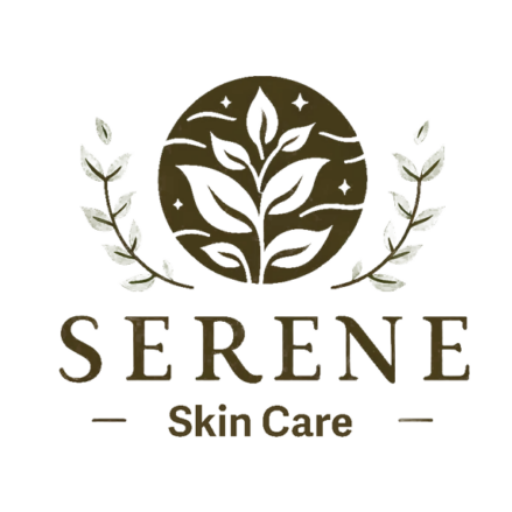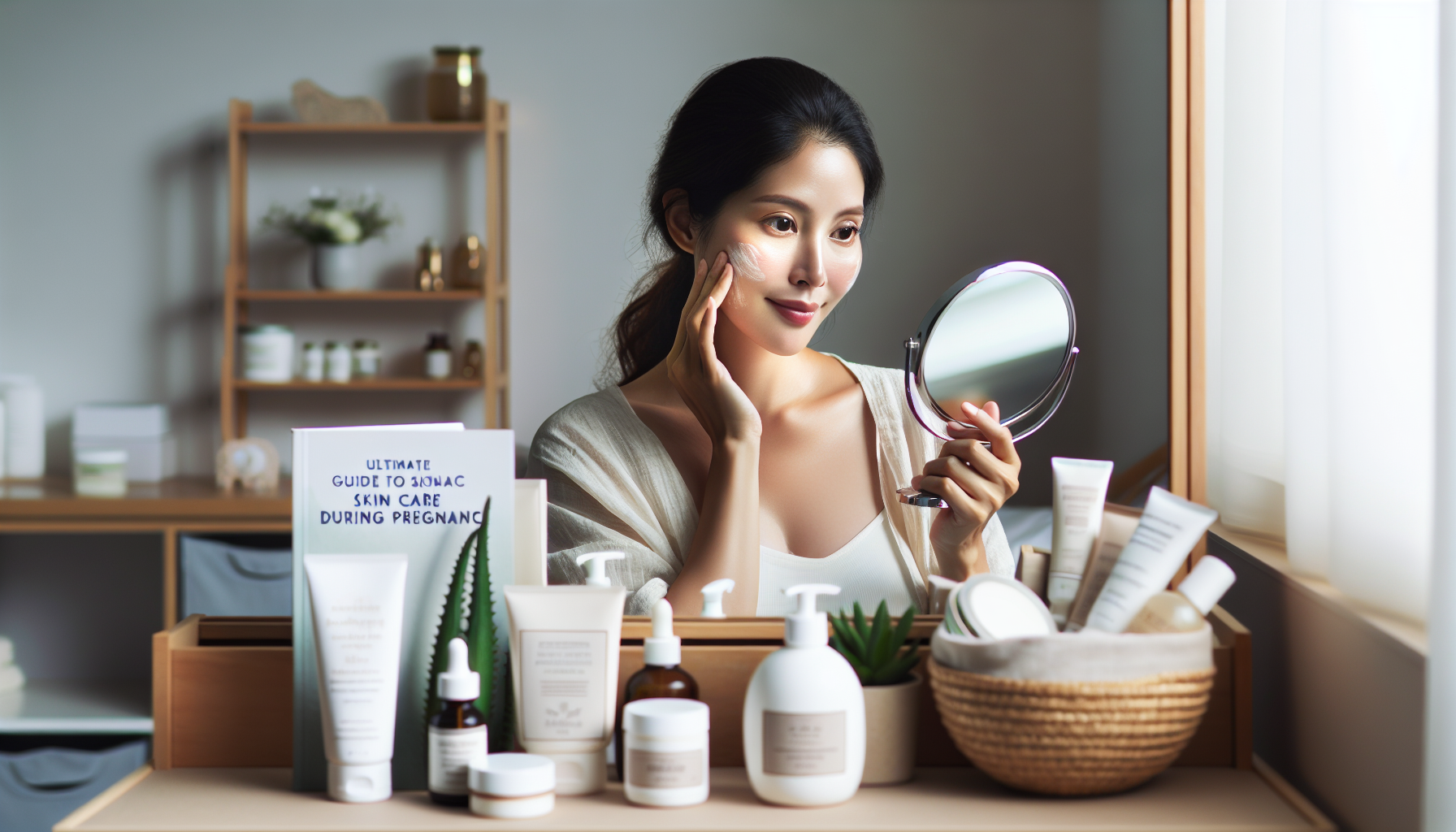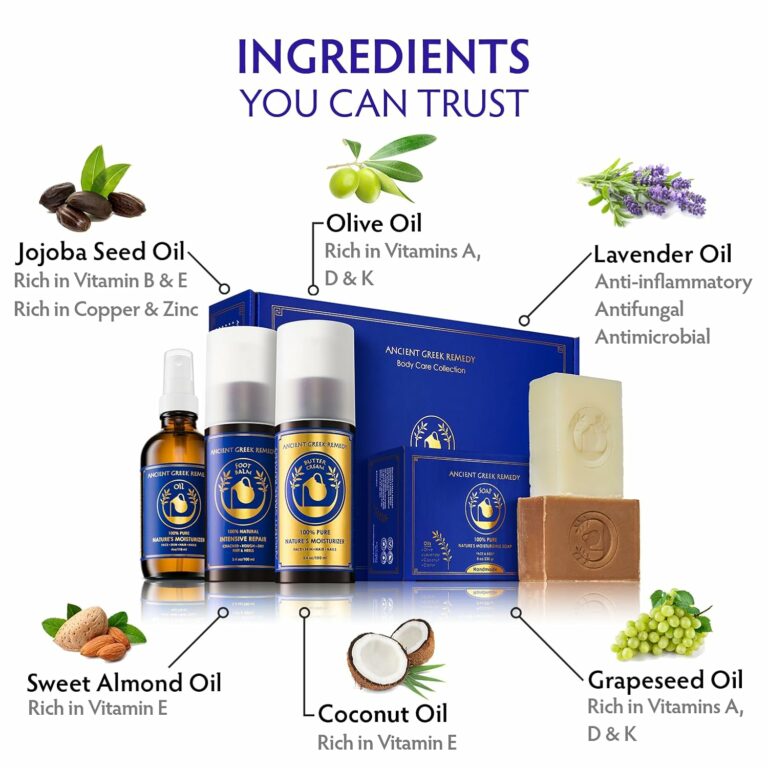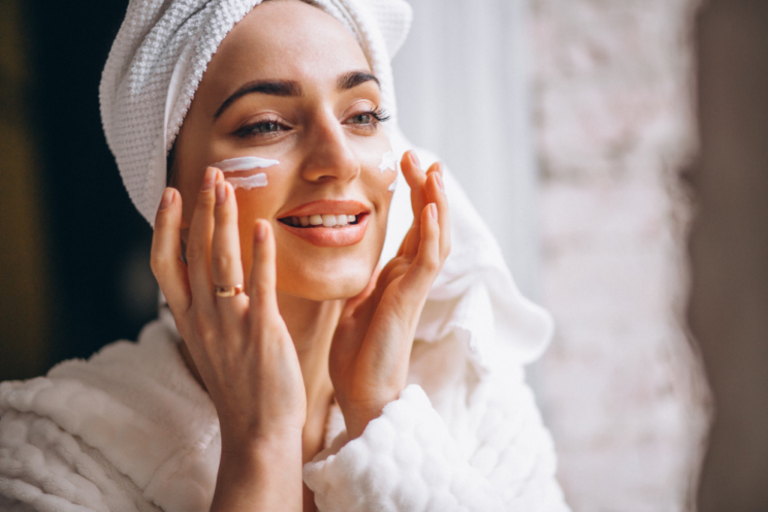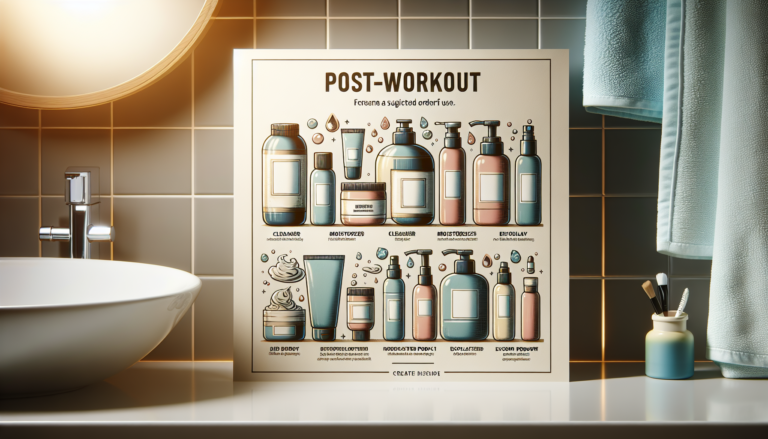Congratulations on your pregnancy! As you embark on this incredible journey, it’s important to prioritize not just your overall well-being, but also the health of your skin. In our comprehensive guide, we will share invaluable tips and insights to help you navigate the world of skin care during pregnancy. From understanding the unique changes your skin goes through during this time to identifying which ingredients to avoid, we’ve got you covered. Get ready to discover a wealth of knowledge that will empower you to nurture and pamper your skin like never before.
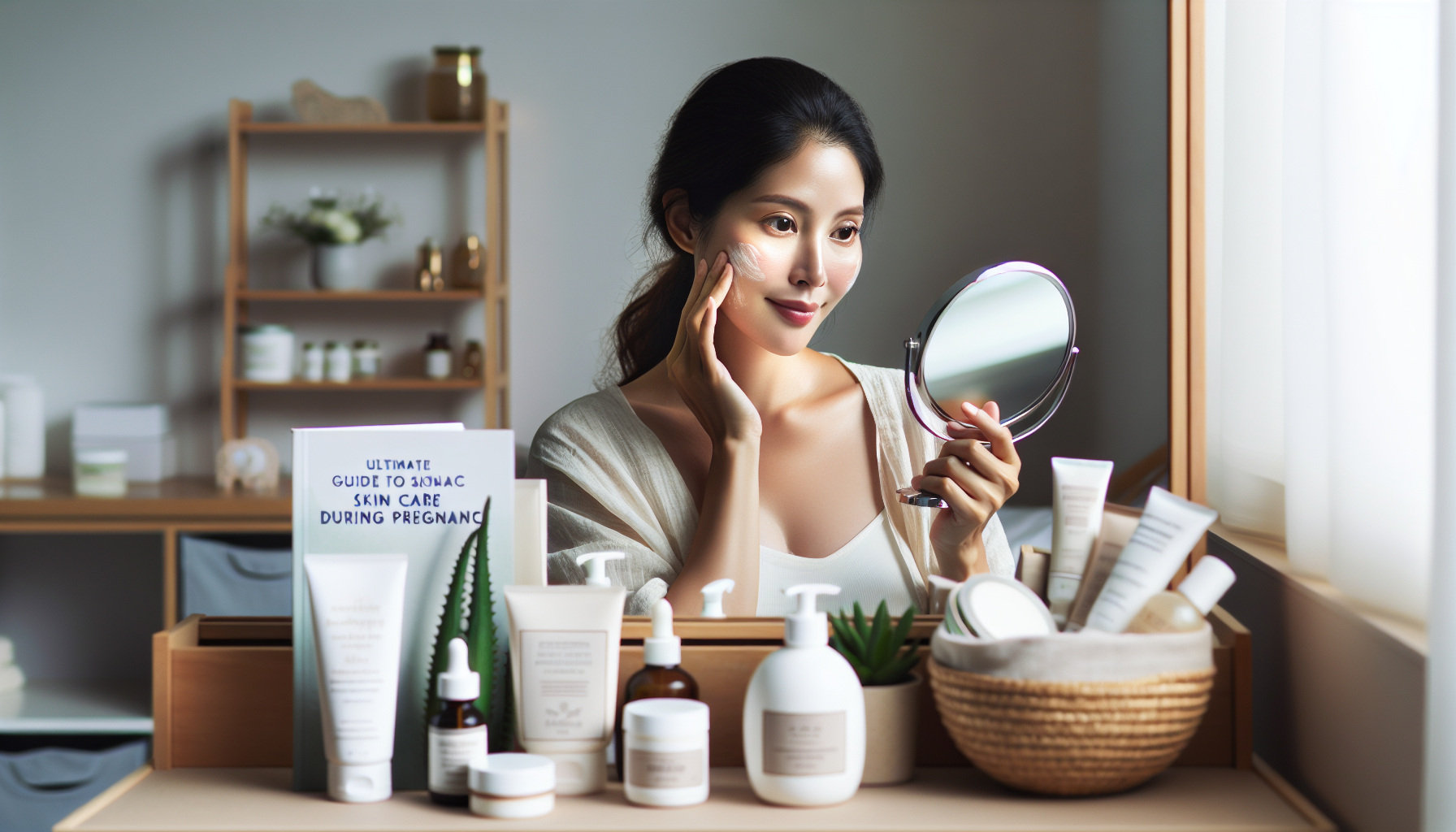
Importance of Skincare During Pregnancy
Pregnancy is a special time in a woman’s life, filled with joy and anticipation. Along with all the incredible changes happening within your body, you may also notice some changes in your skin. These changes are completely normal and are due to the hormonal fluctuations that occur during pregnancy. Taking care of your skin during this time is crucial, not only for vanity reasons but also for the health and well-being of both you and your baby. By understanding the changes in your skin, maintaining a skincare routine, and addressing common skin issues, you can ensure that your skin stays healthy and radiant throughout your pregnancy journey.
Understanding the changes in the skin during pregnancy
During pregnancy, your body experiences an increase in hormone levels, particularly estrogen and progesterone. These hormonal changes can have a significant impact on your skin. Some of the common changes include increased oil production, hyperpigmentation, changes in skin texture, and the appearance of acne or other skin issues. It’s important to understand these changes so that you can adapt your skincare routine accordingly.
Benefits of maintaining a skincare routine during pregnancy
Maintaining a skincare routine during pregnancy offers several benefits. Firstly, it helps to keep your skin clean and clear, preventing the buildup of dirt and oil that can lead to breakouts. Secondly, it helps to minimize the appearance of common skin issues such as stretch marks, melasma, and hyperpigmentation. Thirdly, a skincare routine can be a wonderful form of self-care and can help you feel more confident and beautiful during this transformative time. Lastly, by taking care of your skin, you are also taking care of your overall health and well-being.
Common skin issues during pregnancy
Pregnancy can bring about a range of skin issues that may cause discomfort or concern. Some of the most common skin issues during pregnancy include hormonal acne, stretch marks, melasma, and hyperpigmentation. Understanding how to address and manage these issues can greatly improve your skin’s appearance and alleviate any discomfort you may be experiencing.
Safe Skin Care Ingredients During Pregnancy
During pregnancy, it’s important to be mindful of the skincare products you use. Certain ingredients commonly found in skincare products can be harmful or potentially unsafe for you and your baby. By identifying and avoiding these harmful ingredients, and instead opting for safe alternatives, you can ensure that your skincare routine remains safe and effective throughout your pregnancy.
Identifying harmful ingredients to avoid
When it comes to skincare during pregnancy, there are several ingredients that you should avoid. These include retinoids, salicylic acid, hydroquinone, and certain essential oils such as tea tree oil and peppermint oil. These ingredients have the potential to cross the placenta and may pose risks to the developing baby. It’s important to carefully read product labels and avoid any skincare products that contain these ingredients.
Recommended safe ingredients for pregnancy
While there are certain ingredients that should be avoided during pregnancy, there are also many safe alternatives that can be used. Some of the recommended safe ingredients for pregnancy include hyaluronic acid, glycolic acid, niacinamide, and vitamin C. These ingredients are known for their hydrating, exfoliating, and brightening properties, making them excellent choices for maintaining healthy skin during pregnancy.
Natural alternatives for common skincare products
If you prefer to use natural skincare products during pregnancy, there are plenty of options available that are safe and effective. For cleansers, you can opt for gentle, plant-based ingredients such as chamomile, lavender, and aloe vera. Natural exfoliants like sugar or coffee grounds can be used to gently slough away dead skin cells. When it comes to moisturizers, look for products that contain natural oils like jojoba, coconut, or shea butter. By opting for natural alternatives, you can ensure that your skin is being pampered with ingredients that are safe and beneficial for both you and your baby.
Basic Skincare Routine for Pregnant Women
Having a basic skincare routine during pregnancy is essential for maintaining healthy and radiant skin. By following a simple routine that includes cleansing, exfoliating, and moisturizing, you can keep your skin looking its best throughout your pregnancy journey.
Cleansing products suitable for pregnancy
When choosing a cleanser for pregnancy, it’s important to select a gentle and mild formula that won’t strip or irritate your skin. Look for cleansers that are free from harsh chemicals and fragrances. Ingredients like chamomile, lavender, and aloe vera can provide soothing and calming properties, making them ideal for pregnancy skincare.
Importance of regular exfoliation
Exfoliation is a key step in any skincare routine as it helps to remove dead skin cells and promote cell turnover, revealing fresh and glowing skin underneath. During pregnancy, it’s important to choose gentle exfoliants that won’t cause irritation or damage to your skin. Natural exfoliants like sugar or coffee grounds can be mixed with a small amount of moisturizer or oil to create a gentle scrub that can be used once or twice a week.
Choosing the right moisturizer for pregnancy
Moisturizing is crucial for maintaining healthy and hydrated skin during pregnancy. Look for moisturizers that are free from harmful ingredients and instead contain nourishing and hydrating ingredients such as hyaluronic acid, shea butter, and natural oils. These ingredients will help to lock in moisture, soothe any dryness or irritation, and keep your skin soft and supple.
Sun Protection for Pregnant Women
Protecting your skin from the harmful effects of the sun is important for everyone, but especially for pregnant women. The increased levels of hormones during pregnancy can make your skin more susceptible to sun damage, leading to issues such as melasma and hyperpigmentation. By understanding the effects of sun exposure on pregnancy, choosing a suitable sunscreen, and following additional sun protection tips, you can keep your skin safe and healthy.
Understanding the effects of sun exposure on pregnancy
Sun exposure during pregnancy can have several negative effects on both you and your baby. The harmful ultraviolet (UV) rays can cause skin discoloration, exacerbate existing melasma or hyperpigmentation, and increase the risk of developing skin cancer. Additionally, overheating from prolonged sun exposure can also lead to dehydration and discomfort.
Choosing a suitable sunscreen during pregnancy
When it comes to choosing a sunscreen during pregnancy, opt for a broad-spectrum sunscreen with a minimum SPF of 30. Look for sunscreens that are labeled “pregnancy-safe” or “baby-safe” to ensure that they do not contain any harmful ingredients. Physical sunscreens that contain zinc oxide or titanium dioxide are considered safe alternatives to chemical sunscreens. These ingredients work by creating a physical barrier on the skin that reflects and scatters UV rays.
Additional sun protection tips for pregnant women
In addition to using sunscreen, there are several other sun protection tips that pregnant women should follow. Avoid direct sun exposure during peak hours (10 am to 4 pm), seek shade whenever possible, and wear protective clothing such as wide-brimmed hats, long-sleeved shirts, and sunglasses. It’s also important to stay hydrated by drinking plenty of water, as dehydration can exacerbate the negative effects of sun exposure.
Addressing Common Pregnancy-Related Skin Issues
Pregnancy can bring about a range of skin issues that may cause discomfort or concern. Understanding how to address and manage these issues can greatly improve your skin’s appearance and alleviate any discomfort you may be experiencing.
Dealing with hormonal acne
Hormonal acne is a common skin issue during pregnancy due to the fluctuation of hormones. To address hormonal acne, it’s important to avoid harsh and drying acne treatments that may contain ingredients unsafe for pregnancy. Instead, focus on gentle cleansing, exfoliation, and using skincare products with natural ingredients known for their antibacterial and anti-inflammatory properties.
Preventing and treating stretch marks
Stretch marks are a common concern for pregnant women, especially as the belly and breasts expand to accommodate the growing baby. While there is no foolproof way to prevent or completely eliminate stretch marks, there are steps you can take to minimize their appearance. Regularly moisturizing your skin with products that contain hydrating ingredients like shea butter, cocoa butter, and vitamin E can help to improve skin elasticity and reduce the likelihood of stretch marks.
Managing melasma and hyperpigmentation
Melasma and hyperpigmentation are two common skin conditions characterized by the appearance of dark patches on the skin. These conditions are often exacerbated by sun exposure and hormonal changes during pregnancy. To manage melasma and hyperpigmentation, it’s important to protect your skin from the sun using sunscreens, hats, and other protective clothing. Additionally, using skincare products that contain brightening ingredients such as vitamin C or niacinamide can help to fade existing dark spots and even out skin tone.
Maintaining Healthy Hair and Scalp During Pregnancy
While much attention is focused on skincare during pregnancy, it’s equally important to take care of your hair and scalp. Hormonal changes can affect the health and condition of your hair, leading to changes in texture, thickness, and even hair loss. By following a few simple hair care tips and scalp care techniques, you can keep your locks looking luscious and your scalp healthy.
Haircare do’s and don’ts for pregnant women
During pregnancy, it’s important to be mindful of the hair products you use. Certain chemicals found in hair dyes, relaxers, and perms can be harmful to you and your baby. It’s best to avoid these products altogether and opt for natural alternatives or seek the advice of a professional hairstylist specializing in safe treatments for pregnant women. Additionally, avoid excessive heat styling and tight hairstyles that can cause breakage and damage to your hair.
Treating common hair issues during pregnancy
Pregnancy can cause a variety of hair issues, including dryness, increased oil production, and hair loss. To address these issues, it’s important to use gentle and hydrating shampoos and conditioners that are free from harsh chemicals. Incorporating a weekly deep conditioning treatment can help to nourish and moisturize your hair, keeping it soft and manageable. If you’re experiencing hair loss, don’t panic. It’s normal for hair to shed more during pregnancy due to hormonal fluctuations. The hair will typically grow back after delivery.
Scalp care tips for a healthy pregnancy
Maintaining a healthy scalp is essential for healthy hair growth. During pregnancy, it’s important to keep your scalp clean and free from excess oil and product buildup. Use a gentle shampoo and conditioner that is suitable for your hair type and massage your scalp in circular motions to stimulate blood flow and promote hair growth. Avoid scratching or picking at your scalp, as this can cause irritation and potential damage. If you experience any scalp issues such as dandruff or itchiness, consult with a dermatologist or hairstylist for guidance on suitable products and treatments.
Pampering Your Skin with Safe DIY Treatments
Pampering your skin with safe and natural DIY treatments can be a wonderful way to relax and give yourself some TLC during pregnancy. Homemade face masks, body scrubs, and natural remedies can provide nourishment and rejuvenation to your skin, all while avoiding potentially harmful ingredients.
Homemade face masks for pregnancy glow
Creating your own face masks using natural ingredients can help to enhance your pregnancy glow and keep your skin looking radiant. For a hydrating mask, mix together mashed avocado, honey, and a few drops of vitamin E oil. Apply to your face, leave on for 10-15 minutes, then rinse off with warm water. For a brightening mask, combine plain yogurt, turmeric, and lemon juice. Apply to your face, leave on for 10-15 minutes, then rinse off with water.
DIY body scrubs for gentle exfoliation
Gentle exfoliation is important for maintaining smooth and glowing skin during pregnancy. DIY body scrubs made with natural ingredients can provide the perfect balance of exfoliation and hydration. Mix together equal parts of sugar and coconut oil for a simple and effective body scrub. Apply to damp skin, massaging in circular motions, then rinse off with warm water. For added relaxation, you can also add a few drops of your favorite essential oil.
Natural remedies for common skin discomforts
Pregnancy can bring about various skin discomforts such as itchiness, dryness, and sensitivity. Natural remedies can offer relief without the use of harsh chemicals. For itchy skin, applying aloe vera gel or oatmeal paste can help soothe irritation. To combat dryness, coconut oil or shea butter can provide intense hydration. If you’re experiencing skin sensitivity, opt for fragrance-free and hypoallergenic skincare products.
Professional Treatments and Procedures During Pregnancy
While most skincare treatments and procedures are safe to undergo during pregnancy, it’s essential to consult with a qualified skincare professional or healthcare provider before proceeding. Understanding the safety of professional treatments, recommended procedures for pregnant women, and finding a qualified skincare professional are crucial considerations.
Understanding the safety of professional treatments
Certain professional treatments and procedures are generally considered safe during pregnancy, such as facials, light therapy, and gentle chemical peels. However, it’s important to inform your skincare professional about your pregnancy to ensure that they customize the treatment or avoid any potentially harmful procedures. Always seek advice from your healthcare provider and skincare professional before undergoing any treatment.
Recommended skincare procedures for pregnant women
Some skincare procedures that are safe and beneficial for pregnant women include hydrating facials, gentle exfoliation using natural ingredients, and non-invasive treatments for specific skin issues such as hyperpigmentation or acne. These procedures can provide relaxation, improve skin texture and tone, and address common pregnancy-related skin concerns. Remember to always choose qualified professionals who have experience working with pregnant women.
Finding a qualified skincare professional
When seeking professional skincare treatments during pregnancy, it’s important to find a qualified professional who understands the unique needs and concerns of expectant mothers. Look for estheticians or dermatologists with experience in treating pregnant women and ask for recommendations from your healthcare provider or trusted friends and family. Always inquire about their certifications, experience, and any additional safety precautions they take for pregnant clients.
Tips for Improving Skin Health through Lifestyle Choices
In addition to following a skincare routine and using safe products, lifestyle choices play a crucial role in improving skin health during pregnancy. A healthy diet, proper hydration, regular exercise, and stress management techniques can all contribute to maintaining vibrant and radiant skin.
Importance of a healthy diet for skin during pregnancy
Eating a balanced and nutritious diet is not only important for the overall health of you and your baby, but it also contributes to the health of your skin. Nutrient-rich foods such as fruits, vegetables, whole grains, and lean proteins provide essential vitamins and minerals that promote skin health. Foods high in antioxidants, such as berries and leafy greens, can help combat oxidative stress and protect your skin from damage.
The role of hydration in maintaining skin elasticity
Proper hydration is key to maintaining skin elasticity and preventing dryness during pregnancy. Drinking an adequate amount of water throughout the day helps to flush out toxins, hydrate the skin from within, and promote a healthy complexion. Aim to drink at least eight glasses of water daily and incorporate hydrating foods such as cucumbers, watermelon, and oranges into your diet.
Exercise and relaxation techniques for better skin
Regular exercise during pregnancy not only helps to maintain overall health and fitness but also promotes healthy skin. Exercise improves blood circulation, which in turn delivers oxygen and essential nutrients to your skin cells, giving you a natural glow. Additionally, practicing relaxation techniques such as yoga, meditation, or deep breathing exercises can help reduce stress levels, which can have a positive impact on your skin.
Maintaining Emotional Well-being and Self-care
Taking care of your emotional well-being is just as important as taking care of your physical health during pregnancy. The state of your mind can directly impact the health and appearance of your skin. Practicing self-care, seeking professional help when needed, and managing stress effectively are all essential for maintaining not only healthy skin but also a positive and joyful pregnancy experience.
The impact of stress on skin health during pregnancy
Stress can wreak havoc on your skin, aggravating existing skin issues and causing new ones to arise. The hormonal changes that occur during pregnancy can make you more susceptible to the negative effects of stress on your skin. High levels of stress can lead to increased oil production, breakouts, and inflammatory skin conditions. It’s crucial to manage stress effectively to minimize its impact on your skin.
Practicing self-care to support overall well-being
Practicing self-care is vital for your overall well-being during pregnancy. Taking time for yourself to relax, unwind, and engage in activities that bring you joy and peace can have a positive impact on your emotional and physical health. Whether it’s enjoying a warm bath, reading a book, or practicing gentle skincare rituals, self-care allows you to recharge and nourish your mind, body, and soul.
Seeking professional help for emotional support
Pregnancy can bring about a range of emotions, from joy and excitement to anxiety and mood swings. If you find yourself struggling with your emotional well-being during pregnancy, it’s important to seek professional help. Talking to a therapist or counselor who specializes in prenatal and postpartum mental health can provide you with the support and guidance you need. Remember, taking care of your emotional health is just as important as taking care of your skin and physical well-being.
In conclusion, skincare during pregnancy is of utmost importance for both the health and appearance of your skin. By understanding the changes in your skin, using safe and effective skincare ingredients, following a basic skincare routine, protecting your skin from the sun, addressing common skin issues, and taking care of your hair, scalp, and emotional well-being, you can ensure a healthy and radiant pregnancy glow. Remember, you deserve to pamper and care for yourself during this special time, so indulge in self-care and enjoy the journey to motherhood.
